Let me show you a bunch of realistic “growth hacks” for your blog.
I’ve used these tactics for the past 3 years to grow a bunch of profitable blogs.
These strategies require a ton of hard work and patience.
You can say goodbye to overnight success. But if you follow these growth hacks, you might see results in a year or two.topi
Let’s jump into it!
Steal Your Competitor’s Strategy
To create a successful blog, you need a good content strategy.
Instead of creating one, just steal it from your competitors.
- Head over to your competitor’s sitemap.
- Steal the topics.
- Write a better version of every post with your unique twist.
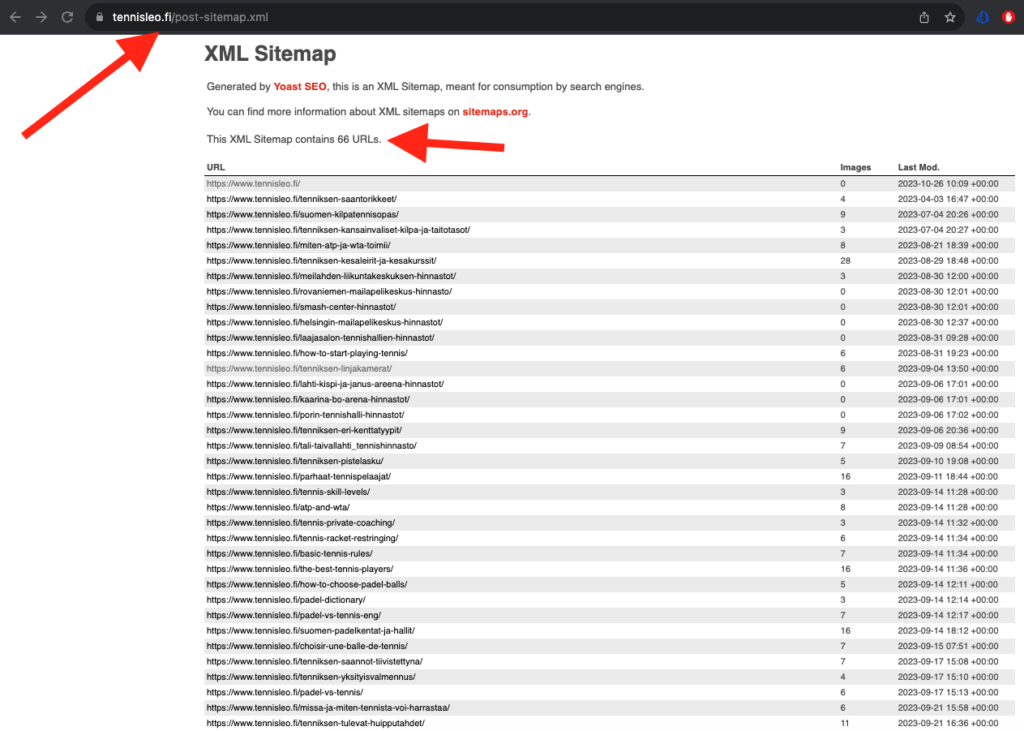
This sounds easy—and it is. But it takes a really long time.
You see, we are not just copy-pasting content.
Instead, we’re running away with the ideas and then building super high-quality and detailed posts for those.
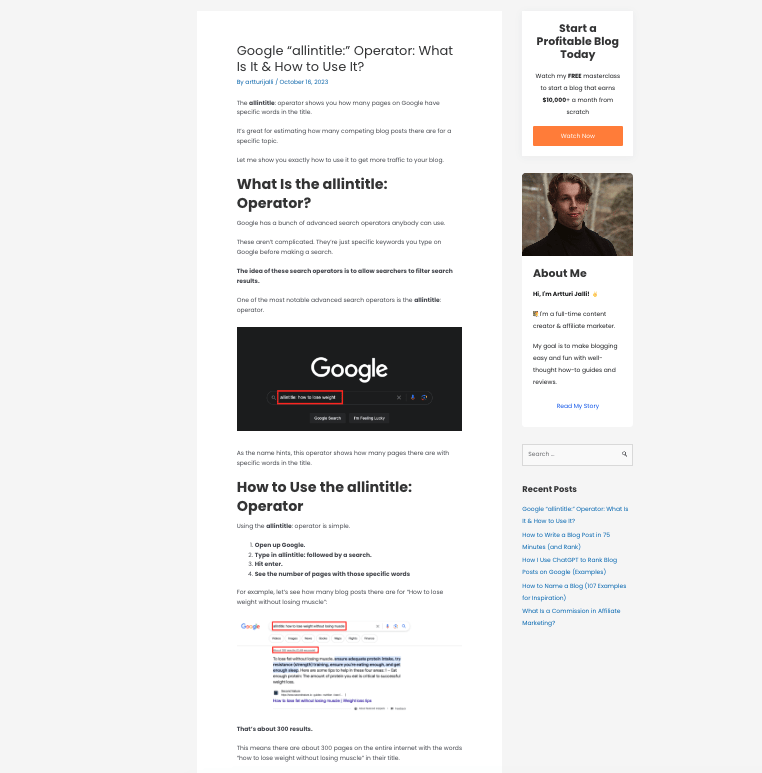
Of course, this requires some filtering too.
Some blogs share posts that aren’t interesting or won’t bring any traffic, at least.

Your focus should be on content that gets organic search traffic.
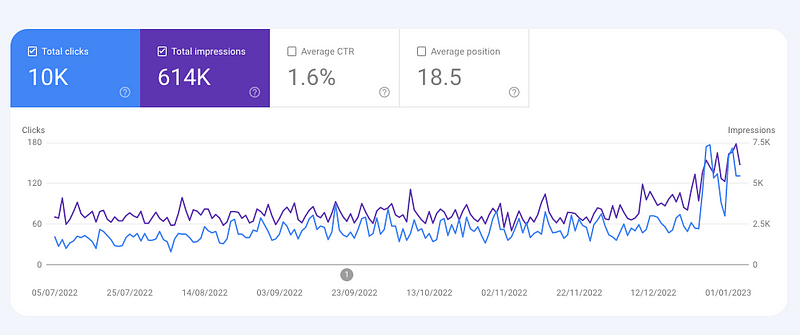
Write the Best Posts Only
If you write “just another post” about a topic, that will never rank.
Why would it? Why would Google show a blog post in the search results that’s already there?
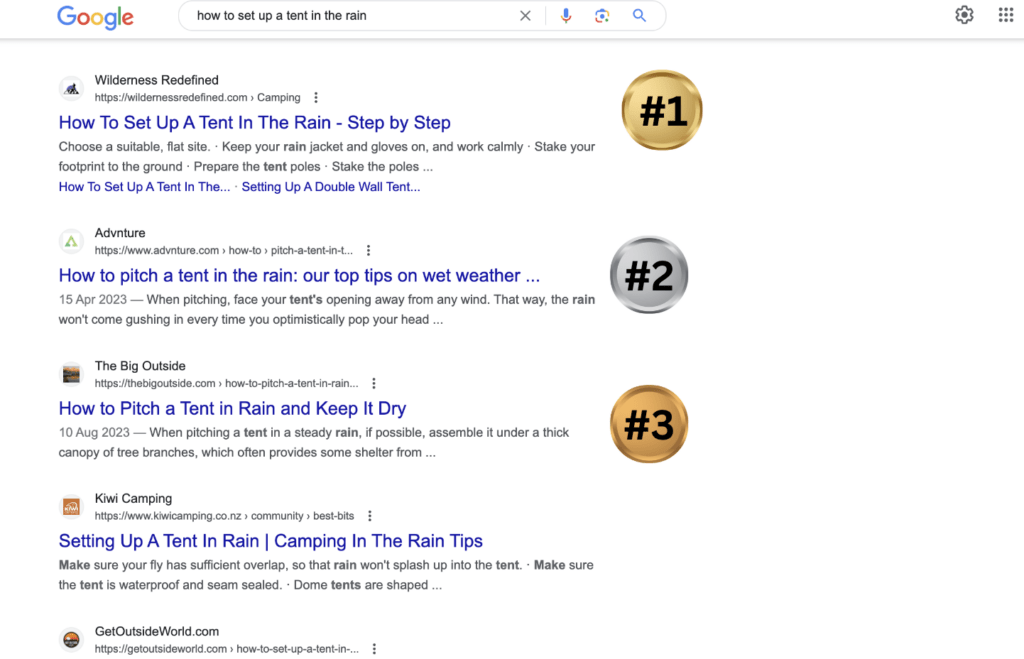
To stand out, you need to be the best.
In other words, your blog post needs to be the best resource about that topic on the entire internet.
Some of my blog posts are 10,000+ words in length. But this is sometimes what it takes.
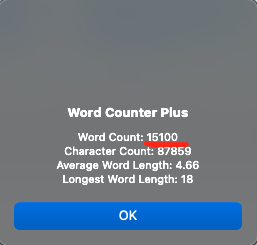
It’s like in any other business. You need to push the boundaries beyond limits.
But it’s easy for me to tell you to “write the best post”. But what does it actually mean?
First of all, forget about perfection. No post is perfect. Most content on the internet is 4/10 or 5/10 in quality.
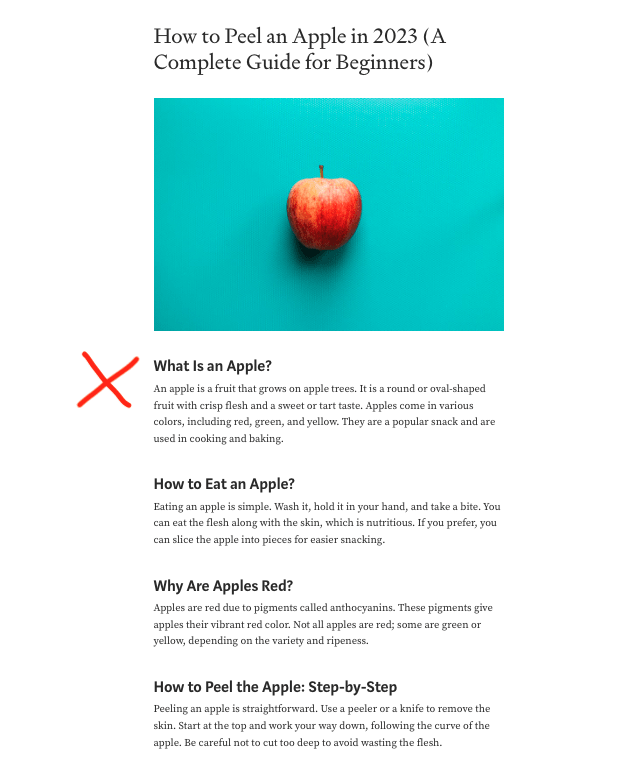
Your task is to write a post that’s 7/10 or 8/10.

To write the best post, it needs to be valuable and accessible.
Here are some ideas:
- Have a clear structure (headings, subheadings, lists, tables, images)
- Add a boatload of supporting images and visuals
- Make the post super long but leave no room for jargon
- Use simple language
- Write about a topic you know more about than your competitors
- Spend more time on the post than anyone prior (usually 2-8 hours)
- Back up facts
- Link to your existing content
- Add descriptive alt texts for people listening to your posts
And the list goes on. Basically, you need to do everything better than your competitors.

If you want to know exactly how to do this, make sure to read this post.
Build Topical Authority
Topical authority is a fancy word. It’s not something one can measure. It’s just a concept.
The more posts you have related to your niche, the higher the topical authority.
A website that ranks needs to have a high topical authority.
So if you have a tennis blog, don’t write one post. Don’t write 10 posts. Write all of them.
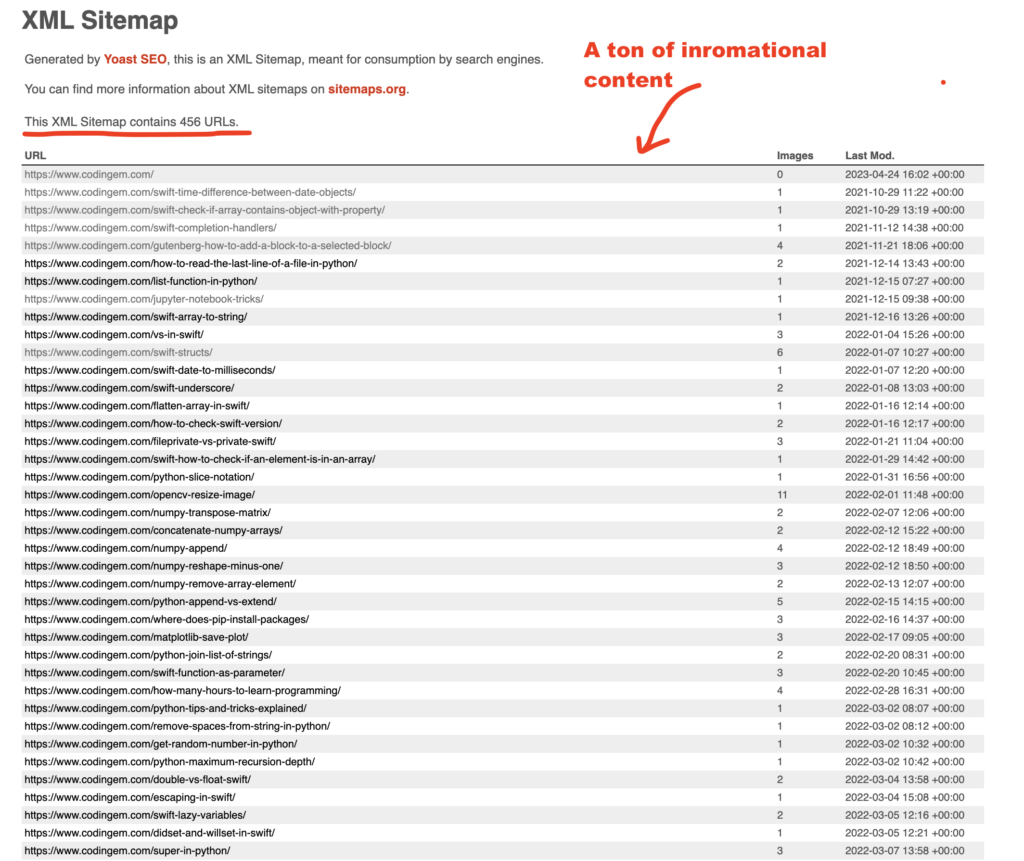
Your visitors should find all the necessary information in your niche without leaving your site. This is the only way to make Google trust your content to show it in the search results.
If Google doesn’t trust your website and treat it like an expert, there’s no way to rank.
Build E-E-A-T
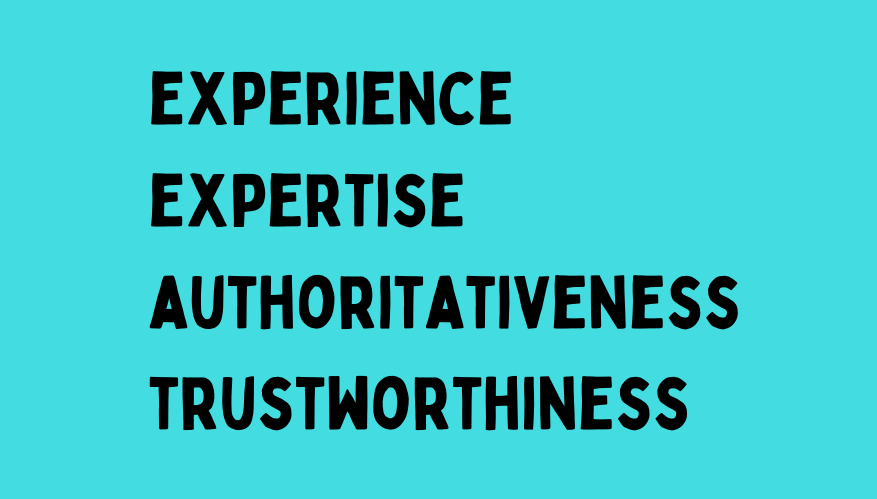
E-E-A-T stands for “Experience, Expertise, Authoritativeness, Trustworthiness.”
It’s key for high Google search rankings. E-E-A-T emphasizes the content creator’s personal experience and expertise.
- Experience is a must. Firsthand experiences and relevant images boost a site’s credibility. If you have no experience with the topic, it’s hard to write a better post than a cheap freelancer or AI. In other words, it’s hard to stand out.
- Expertise means deep topic knowledge, gained through education or experience. In some niches, having proper education is crucial. But in most niches, it’s not that important!
- Authoritativeness refers to a site’s credibility and recognition in its niche. This happens through deep coverage, detailed content, having others cite your blog, and so on.
- Trustworthiness focuses on content reliability and honesty. It ensures accuracy and non-misleading information. Being relatable, honest, and for example, citing sources are examples of building trust.
E-E-A-T reflects personal experience, deep knowledge, and a commitment to truth. Its importance in search rankings is growing the better Google’s algorithms become.
For blog success and ranking, E-E-A-T is increasingly vital. It’s a core part of any blog growth strategy.
Make sure to read my post about E-E-A-T to know how to build it.
Add Visuals
The most important aspect of blogging is making the content visually appealing.
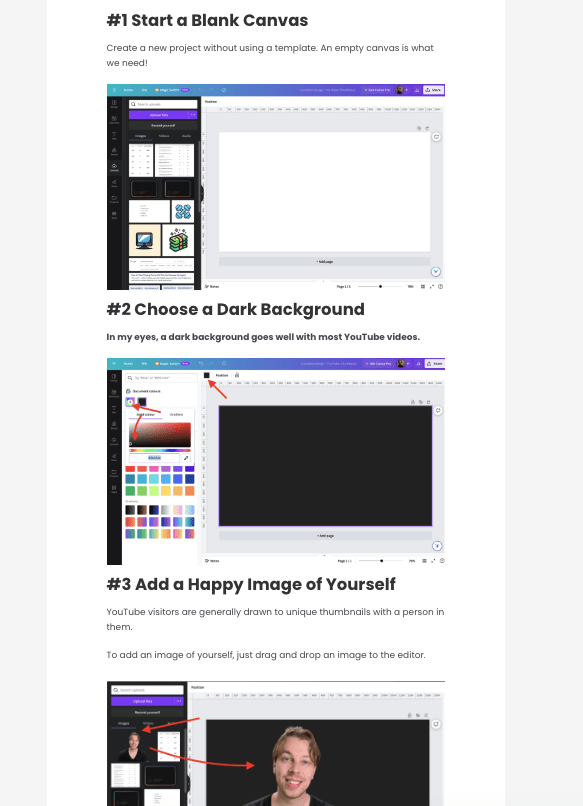
Anybody can write text. Even AI can do it these days. But not many can create truly useful and context-fitting visuals.
Surely, one can use AI to generate images. But those don’t add anything to the content.

To stand out, your blog post should be as visual as possible.
Some say it’s good to add one image per 150 words. I’d say add more. Add as many useful images as you can.
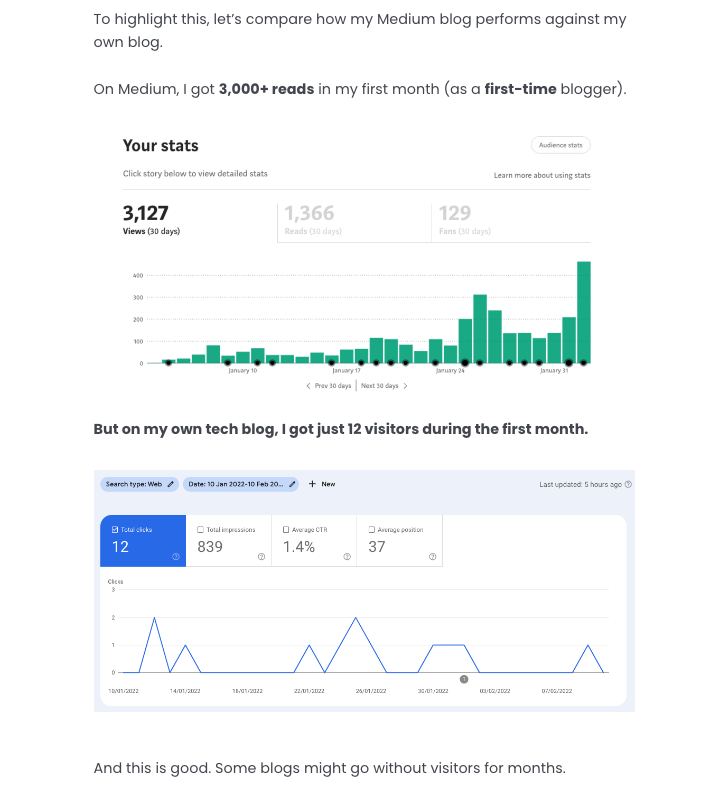
Every image, illustration, and infographic should support the content.
If it’s a generic AI-generated picture, that doesn’t make the difference. Every image should help deliver your message.
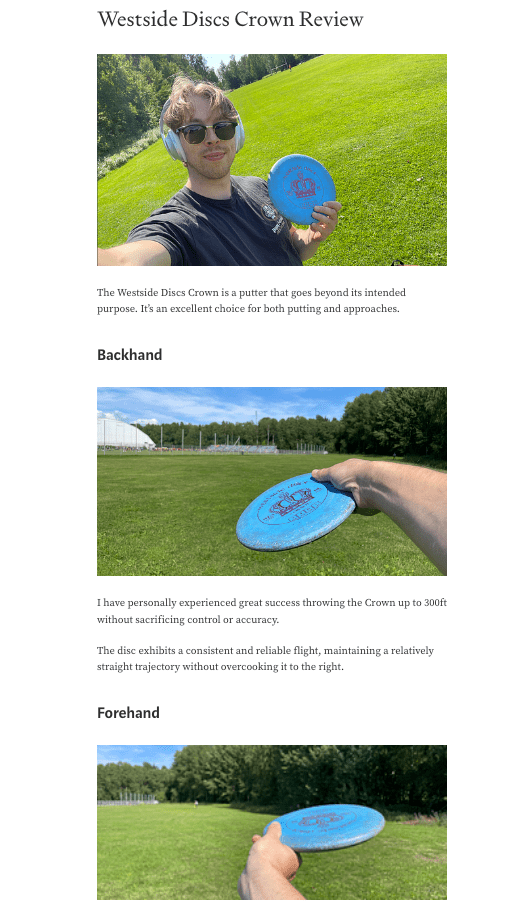
Read also: How to Use Images in Blog Posts
Don’t Rely on AI
These days, many people jump from creating good content to writing trash with AI.
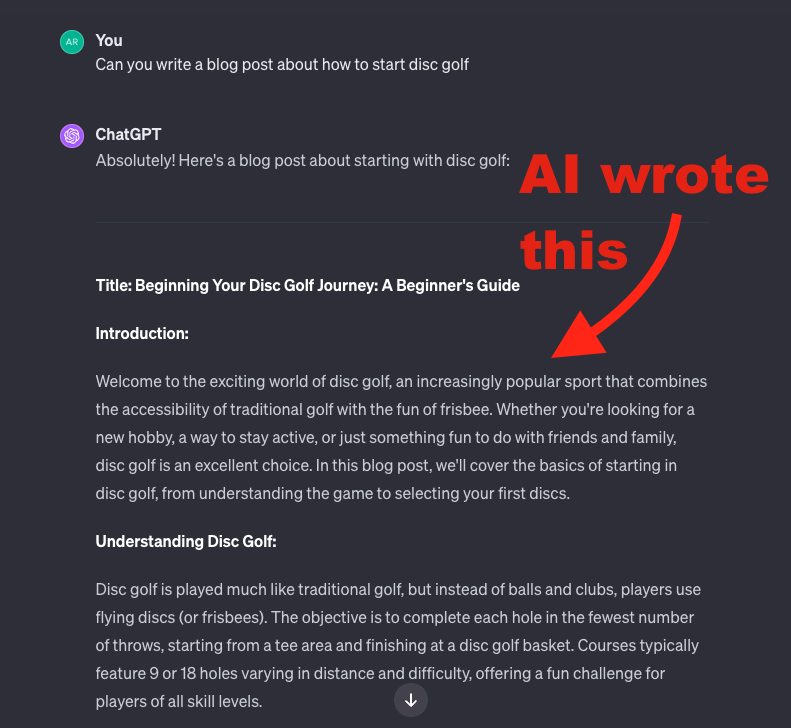
AI content doesn’t rank.
I’ve experimented with ChatGPT since 2020 (yes, I was among the first 1,500 to ever try). It’s a good companion, but it doesn’t really save time.
My AI blog was completely trashed by Google. It literally got 22 clicks in 6 months.
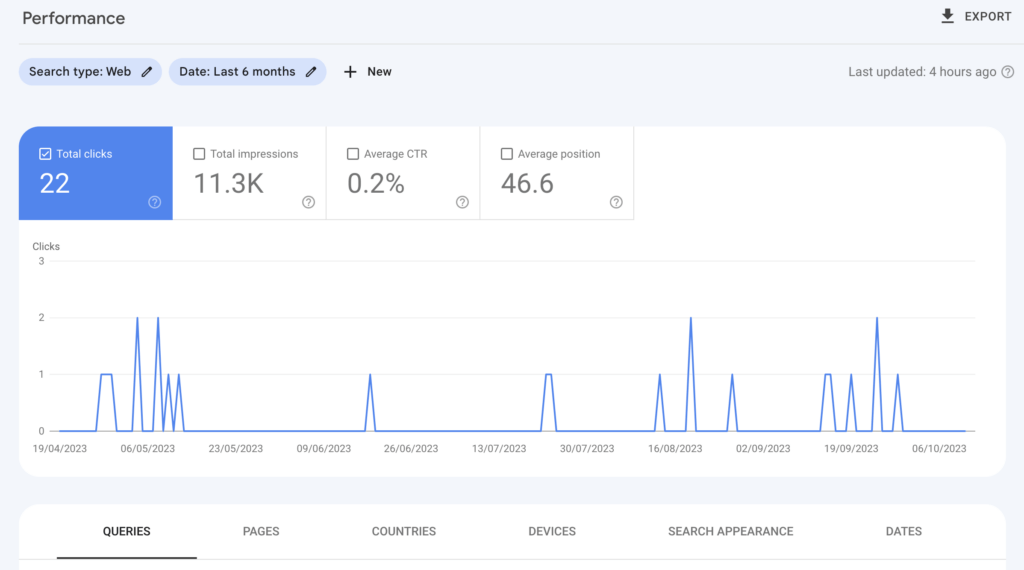
I have another younger site that gets thousands of times more traffic…
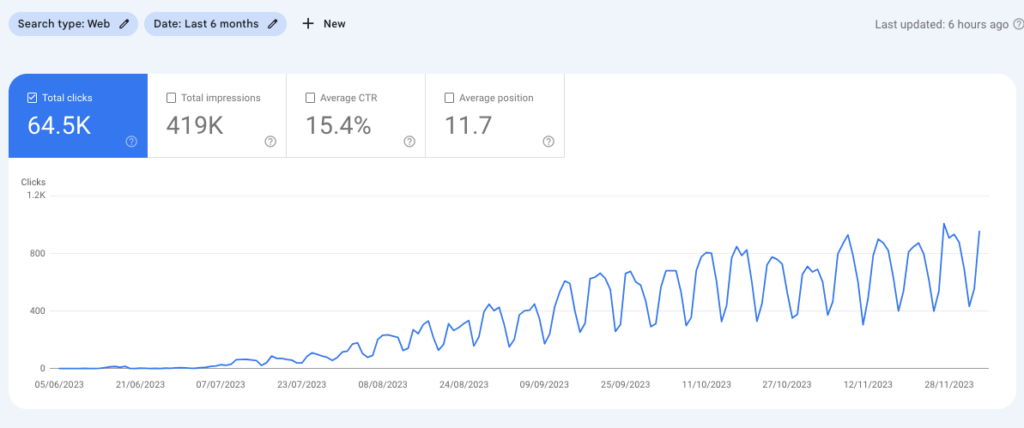
The more you know about a topic, the more mistakes you will spot. I’ve found out that with AI, it actually takes longer to write a post than without it.
Also, AI doesn’t add to the web. It just repeats.
Google is very good at finding out if a post adds to the web or not. If it’s just another spin at someone else’s work, that will never cut it.
Take the time. Write an actually useful post without the help of tools like ChatGPT.
Write Daily
Write every single day.
Google doesn’t care about frequency. But your growth curve does.
If you write a blog post every now and then, you’re going to see very slow growth.
But if you write every day, it might only take a year or two for you to see great results.
Here’s an example site of mine that has 400 blog posts. It took more than a year to get consistent 400 visitors per day. And 400 per day is not much…
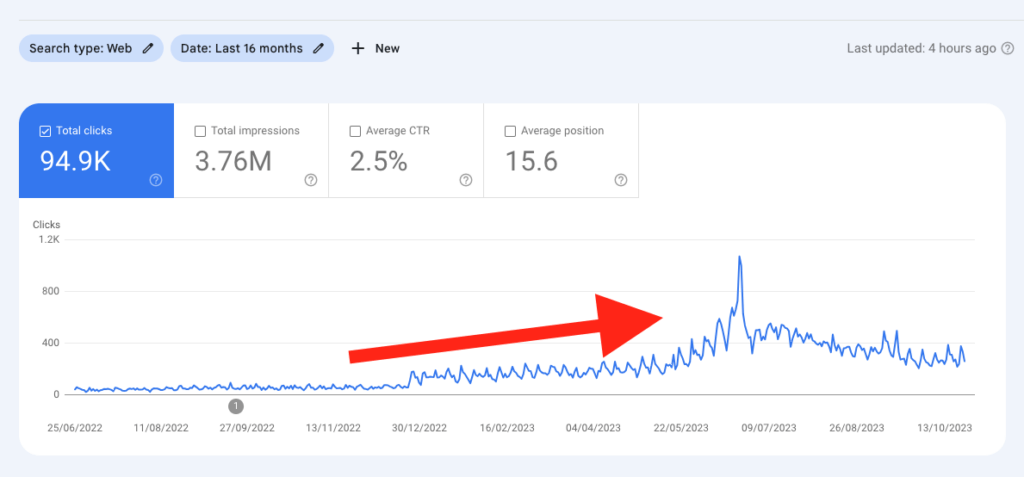
Try to spend 2-3 hours writing every day if full-time is not an option for you.
Be patient and don’t give up. If you don’t see results in 3 months, that’s way too early to be worried about it.
Forget about SEO Tools
Don’t use SEO tools. Those are inaccurate, expensive, and don’t give you the edge.
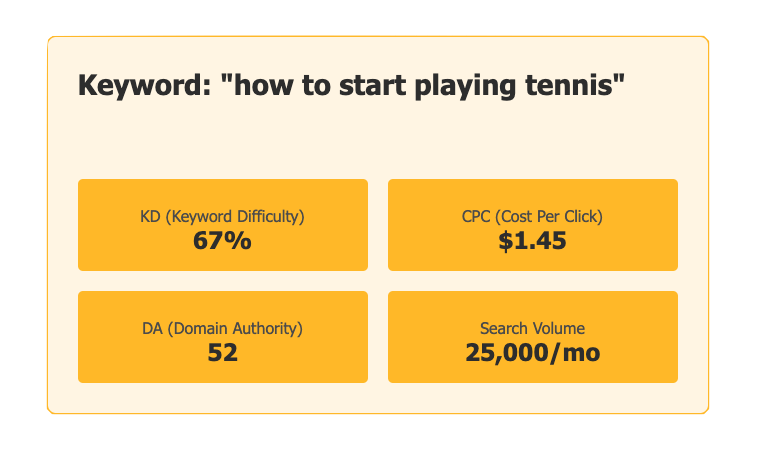
You will only end up losing focus and money.
I’ve tried SEO tools in the past. Once the tool told me this topic has no people searching for it on the internet.
I didn’t believe it. I wrote the post and it gets 1,000 visitors per month. That doesn’t look like a 0 to me.
SEO tools and AI SEO tools are a thing of the past. SEO used to be all about search engines and clever strategies.
But these days, it’s all about writing truly useful content for people in your niche.
Use Google for SEO
I’m not a huge fan of the word SEO. But I still use it because it’s short.
To write a good blog post, you need to find a good topic first.
Instead of using a pricey SEO tool, use Google (or your competitors). Find a topic that people are searching for.
In other words, open Google and type in something related to your niche.
This shows your recommendations. These recommendations are good blog post topics.
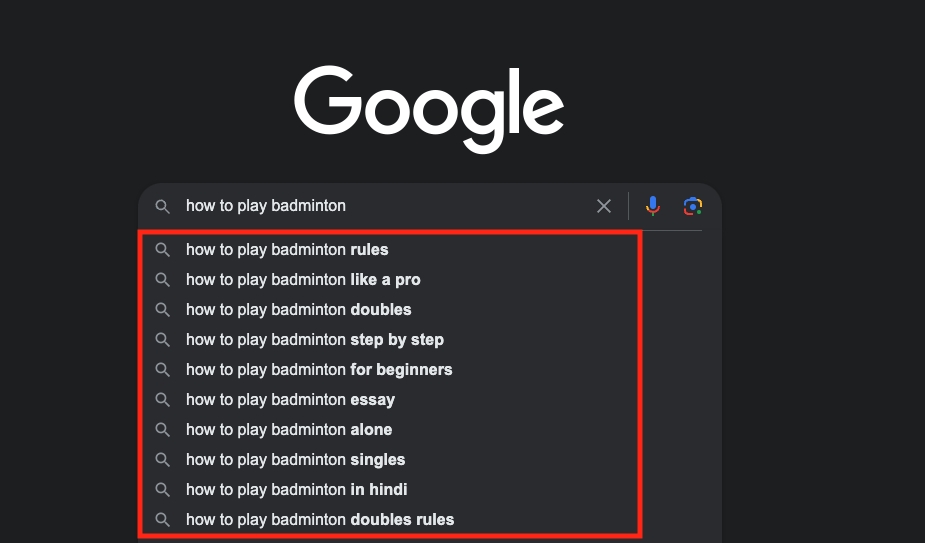
You can find more topics from People also ask, and related searches, as well as Google Trends.
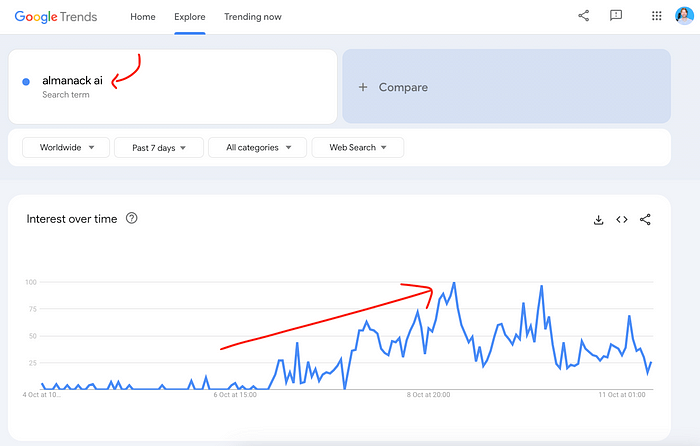
Do not come up with your topics.

This is never a good strategy. People don’t read random blogs anymore. Instead, they want to find solutions to their problems.
Remember, a good blog post solves a problem. A blog post that ranks on Google is the one that solves the problem the best.
Thanks for reading!
